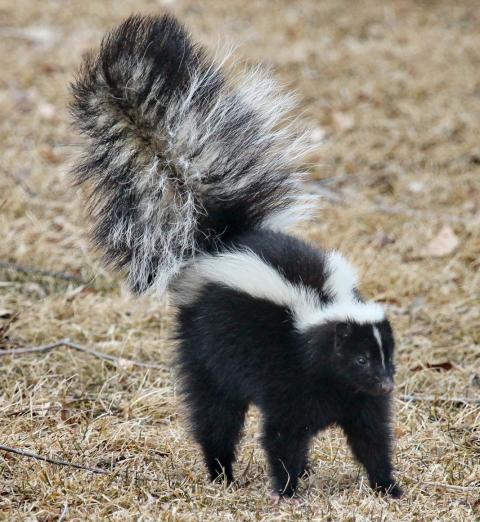Skunks Active in February?

The Infoline has been getting questions about neighborhood skunk sightings around New Hampshire, and people are wondering if it's too early for skunks to be active.
In New Hampshire, striped skunks typically spend the winter months hunkered down in earthen dens. While they don’t fully hibernate, they are mostly inactive in the winter, surviving off of thick layers of fat they accumulated during the summer and fall. Skunks will wake up periodically throughout the winter, and if temperatures are warm enough, they will venture out to scavenge. Winter fare is usually pretty scarce, leaving skunks to feed on carrion, fruit, seeds, and occasionally the offerings of backyard compost piles.
This time of year is skunk breeding season. Striped skunks mate from mid-February through mid-March. Generally, skunks will stay in their burrows until the first streak of warm weather in February. Warmer temperatures draw them out of their dens and set them looking for mates. Male skunks are especially mobile as they search for females in their territory.
Skunks usually only spray as a last resort. When a skunk feels threatened, it will normally try to run away. If this method is unsuccessful it may then try to scare away the predator by turning its back, raising its tail, and sometimes even stomping its feet. If all else fails, the skunk will release its infamous, strong-smelling spray in the direction of the predator.
The takeaway message is this: if you see a skunk wandering around this time of year, don’t worry - just give him space as he looks for love.
Got questions? The Ask UNH Extension Infoline offers practical help finding answers for your home, yard, and garden questions. Call toll free at 1-877-398-4769, Monday to Friday, 9 a.m. to 2 p.m., or e-mail us at answers@unh.edu.